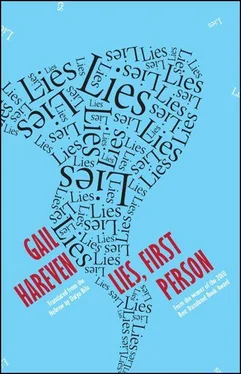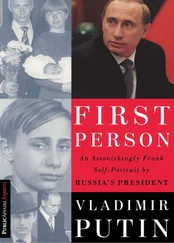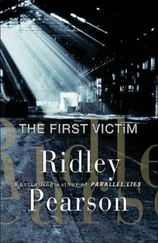Albert, the hero, is a European intellectual of the old school, a little like himself: a graduate of the Sorbonne, not exactly the type commonly found in the foreign service, and his present post is the last before his retirement. The special situation in which Albert finds himself gives rise in him to a sense of freedom — a consciousness of his personal freedom, perhaps — and thus, more than occupying himself with the dissemination of French culture, the consul devotes himself to the local culture.
At first he broadens his knowledge of Sanskrit, and also tries to learn Khmer. For a certain period he explores the roots of Buddhism. His journey begins with the ancient Khmer traditions, and shifts to the horrors of the history of Cambodia in the second half of the twentieth century.
Do we know, by the way, what the Americans called their carpet bombing of Cambodia? These murderous daily flights were referred to in the American air force as “breakfast,” “lunch,” “dinner” and “snacks.” Two hundred thousand people were slaughtered in this manner. To remind us that the jackboot comes in different colors. But to get back to the book.
Phnom Penh, as we know, is surrounded by mass graves. And the proximity of the murderous hell oppresses Albert. The terrible past seems more real to him than the present, and he is increasingly repelled by the pleasures of the new life of the city. It is important to point out that we are talking about a serious-minded person here, an intellectual with no hedonistic inclinations, who sees the pleasure-seeking life around him not as frivolous but as sinful: as a denial of the horror and the truth.
The hero’s research becomes increasingly focused on the four years of Khmer-Rouge rule.
Opinion is divided on the question of how many people were liquidated by the regime of Pol Pot. So divided that the estimates vary from less than a million to two million. A similar confusion, a shocking confusion concerning millions of human lives, can be found in the research into the Stalinist terror, but he is straying from the subject again. The crux of the matter is that Albert is increasingly absorbed by Pol Pot’s penal colony, and the more the subject absorbs him, the greater his need to understand the mind that came up with the idea of the slave labor camps and strewed mines around them.
Albert is a bachelor. Apart from one sister, an old maid who lives in Lyon, he has no family, and he has hardly any friends. The diplomatic way of life combined with a difficult character make him a solitary figure and turns him into a stranger wherever he found himself. From his earliest youth he has kept a diary — the novel in fact consists of Albert’s diary — and in his diary he documents his growing disgust with the official banquets, ceremonies, and other vanities of the empty diplomatic life.
The crux of the matter is that the empty space in his life is increasingly filled with thoughts about the Pol Pot regime, his diary is increasingly filled with these thoughts, to the point where they could be described as an obsession.
Like one possessed he returns again and again to the killing fields of Chvang Ack, and stands before the thousands of skulls in the memorial sepulcher. Albert visits and revisits the skulls, the dry bones, but his thoughts are mainly on the mind. He feels compelled to understand the living mind that smashed the heads of infants only because they were born into the wrong class. He has to understand. And this sense of inner duty gives birth in him to the realization that it is his mission to write a book: he understands that he must write about Pol Pot.
From the point of view of class, the consul belongs to the urban intelligentsia, that specific urban race which Pol Pot described as the root of all evil. And nonetheless he has two things in common with the mass murderer: they had both been educated in Catholic schools, and they were both graduates of the Sorbonne. At the beginning of his research, the naïve scholar believes that with these keys in his hands he will be able to penetrate the layers of ideology and get inside the brain. And only gradually, in the fourth and fifth parts of the diary, does he come to realize how empty his hands are, and how far he is from understanding anything.
To sum up, in banal terms: Albert goes mad. Since he was a child Albert has never experienced a need so absolute, a drive so lacking in doubt, and the thought of giving up the most meaningful project of his life — on what he sees as his vocation — is equal in his eyes to the embrace of death.
In the seventh part of the diary, which is perhaps the most important, Albert has a vision. This happens in the month of May, at the beginning of the monsoon season, when the hero goes to visit the lost towns in the depths of the jungle and returns home burning with fever. There is no clear diagnosis. Different doctors provide him with advice and medications, but he is not healed. In the middle of a restless night of delirium, Albert leaves the house without knowing why, and gets on a plane to Angkor. And there, among the ancient temples of Angkor, under sheets of torrential rain, Satan reveals himself to him.
If this sounds like nonsense to you, please remember that the man was educated as a Catholic. And even though he has lost his childhood faith, and in spite of his philosophical atheism, in utter contradiction to his intellectual convictions — Satan still exists in his mind as a real entity.
So Albert meets Satan, and the Prince of Darkness laughs at Albert. He mocks the insignificance of his life, and throws at him that an urban intellectual will never be able to understand even the least of his representatives. The King of Horrors — he tells him — is not a butterfly to be stuck on a pin and examined under a microscope. There is only once way to understand the acts of Satan, and Albert is too weak and cowardly to embark on it.
The provocative apparition is about to disappear, and Albert, on the point of losing consciousness, understands the choice before him without the need for explanations. This is, of course, an archetypical choice: he must choose between knowledge and the Garden of Eden, between his creation and the immortality of his soul.
Albert falls to his knees and implores Satan not to leave him. He is ready for any sacrifice. And a moment before he loses consciousness he hears Satan instruct him: seek me inside you.
The voice changed its tone, quick and agile as a monkey: one minute it was intimate and engaging, ingratiating almost to the point of parody in its eagerness for our belief; and distant and dry the next, clipped in its pronunciation, as if cynical, and as if flattering our disbelief as if insolently asking us to enter into a clandestine alliance of shared mockery. A liquid voice seeking a crack to seep into. A voice evaporating around us into gas. And not a single, solid word.
Every summary of a plot sounds superficial, says the voice. Like questions demanding a “yes” or “no” answer, a summary too sins against the spirit, and when he was required to send a summary to a publisher, he struggled with the task more than in the composition of the book itself. We had to believe him that the book was far from being as superficial as it sounded when he described it like this.
And so, as we had no doubt guessed, Albert recovers his health, there is no need to go into the details now, but the words of Satan will not leave him be. He understands that evil is not an object, and certainly not an external object to be examined with surgical gloves behind the masks of theory. In order to get to the bottom of the mind that refers to burning people with napalm as a “snack”; in order to mine the depths of a brain that empties an entire city of its inhabitants, a man must expose himself to true and honest contact. He must have the courage to penetrate the abyss of the soul of evil and to be truly penetrated by it.
Читать дальше












